Competence/Confidence
post by Duncan Sabien (Deactivated) (Duncan_Sabien) · 2021-11-20T08:59:16.497Z · LW · GW · 19 commentsContents
19 comments
This "essay" is a bit of an experiment, format-wise. I'd like to draw the reader's attention to a certain way of thinking about and evaluating progress that's been useful to me in a wide variety of domains. It's an exercise I run through when I'm feeling stuck, which almost always provides some nugget of actionable insight. It should take about three minutes to skim, and about thirty if you're actually engaging actively.
Choose a skill. It could be dancing, or Haskell, or public speaking, or basket weaving, or backflips, or conflict resolution, or fiction writing, or emotional regulation, or impressing potential romantic partners, or whatever, so long as it's a skill you're either working on or expecting to work on at some point in the near future.
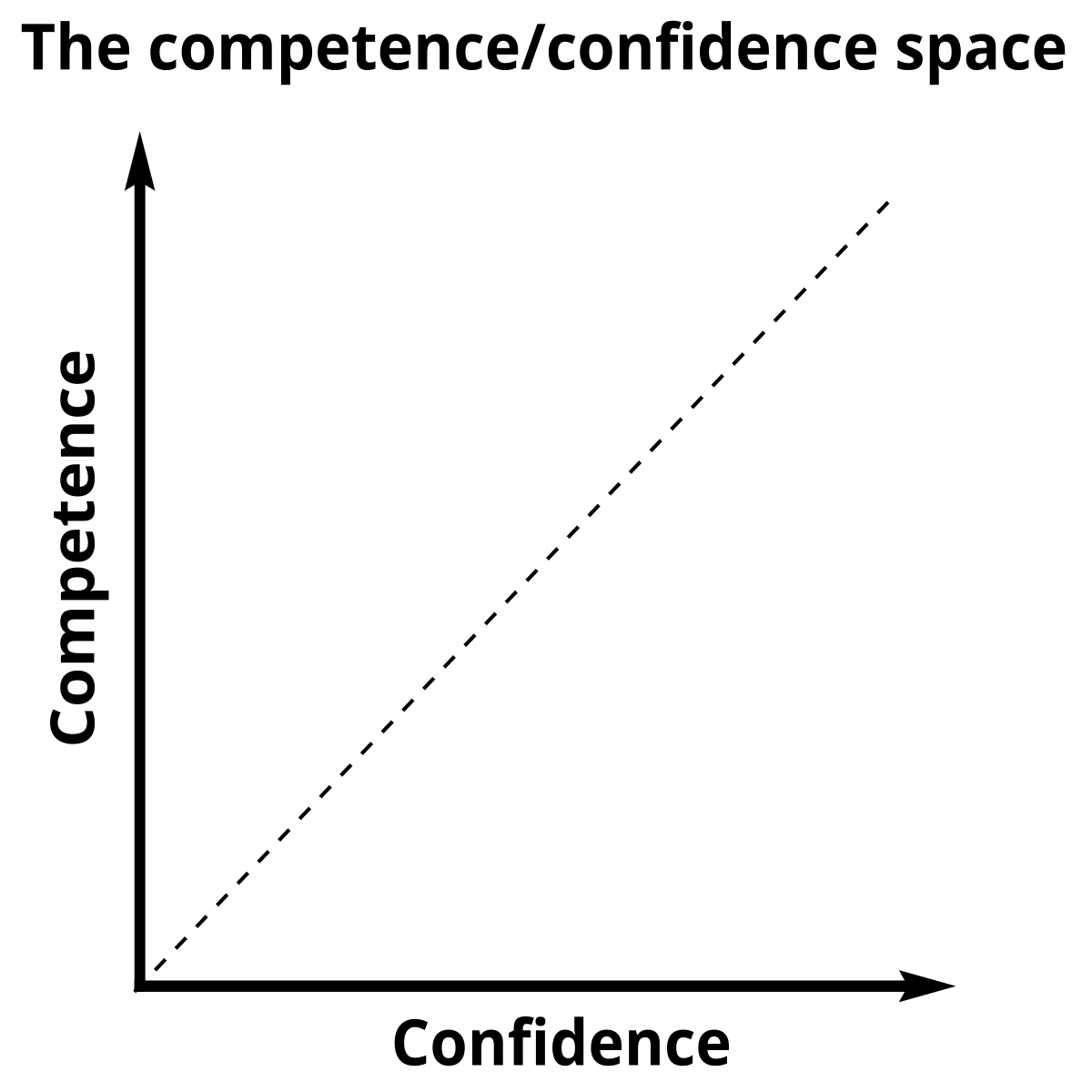
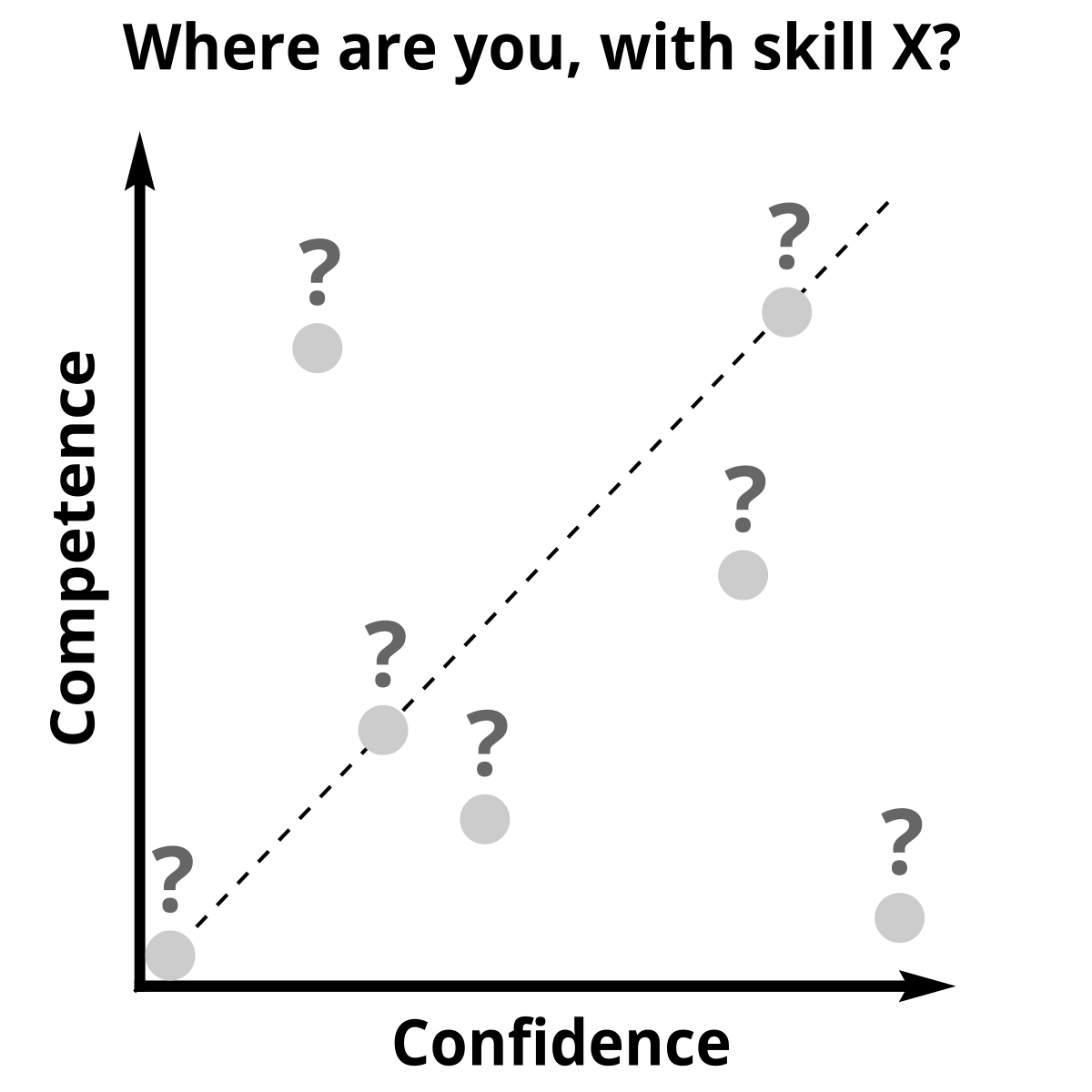
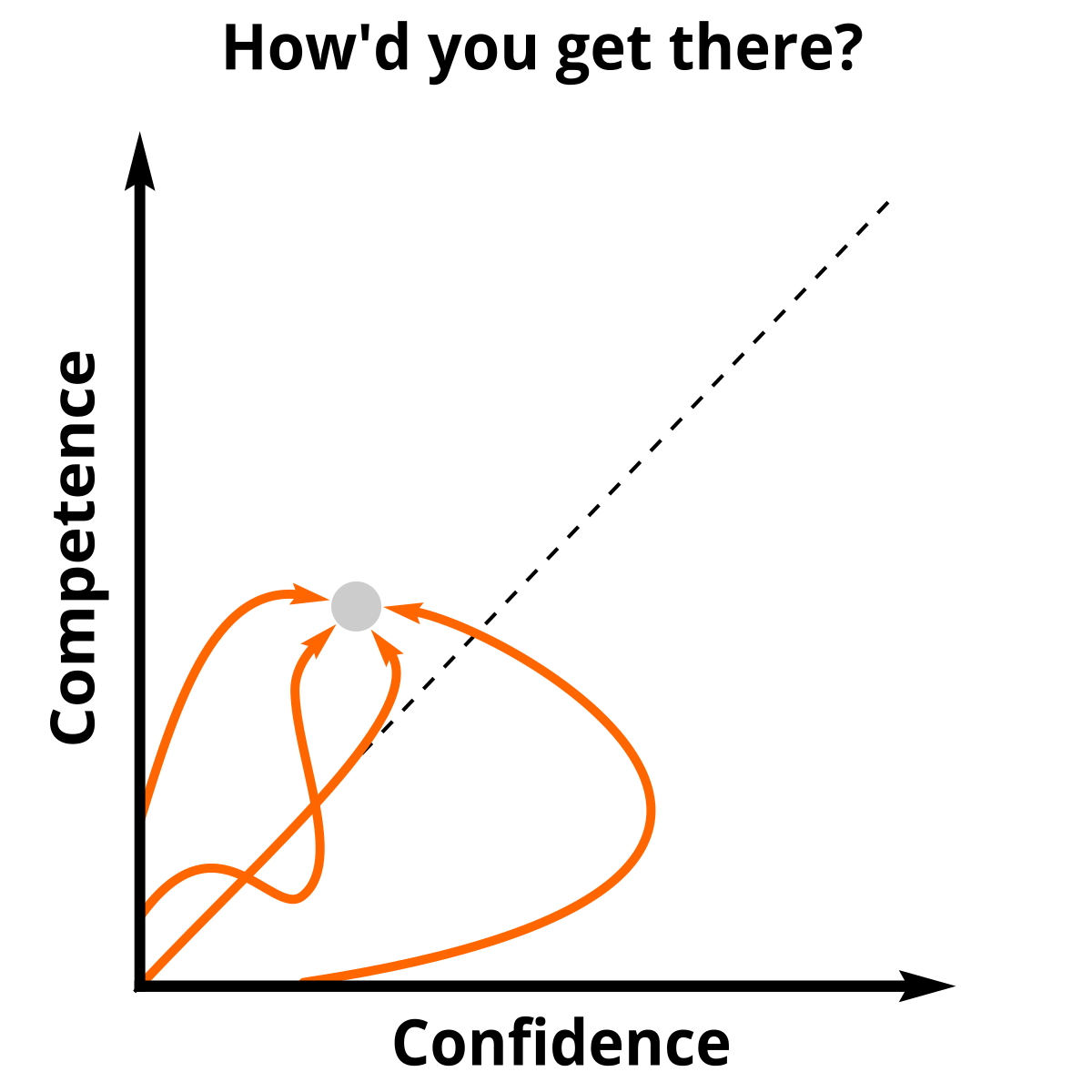
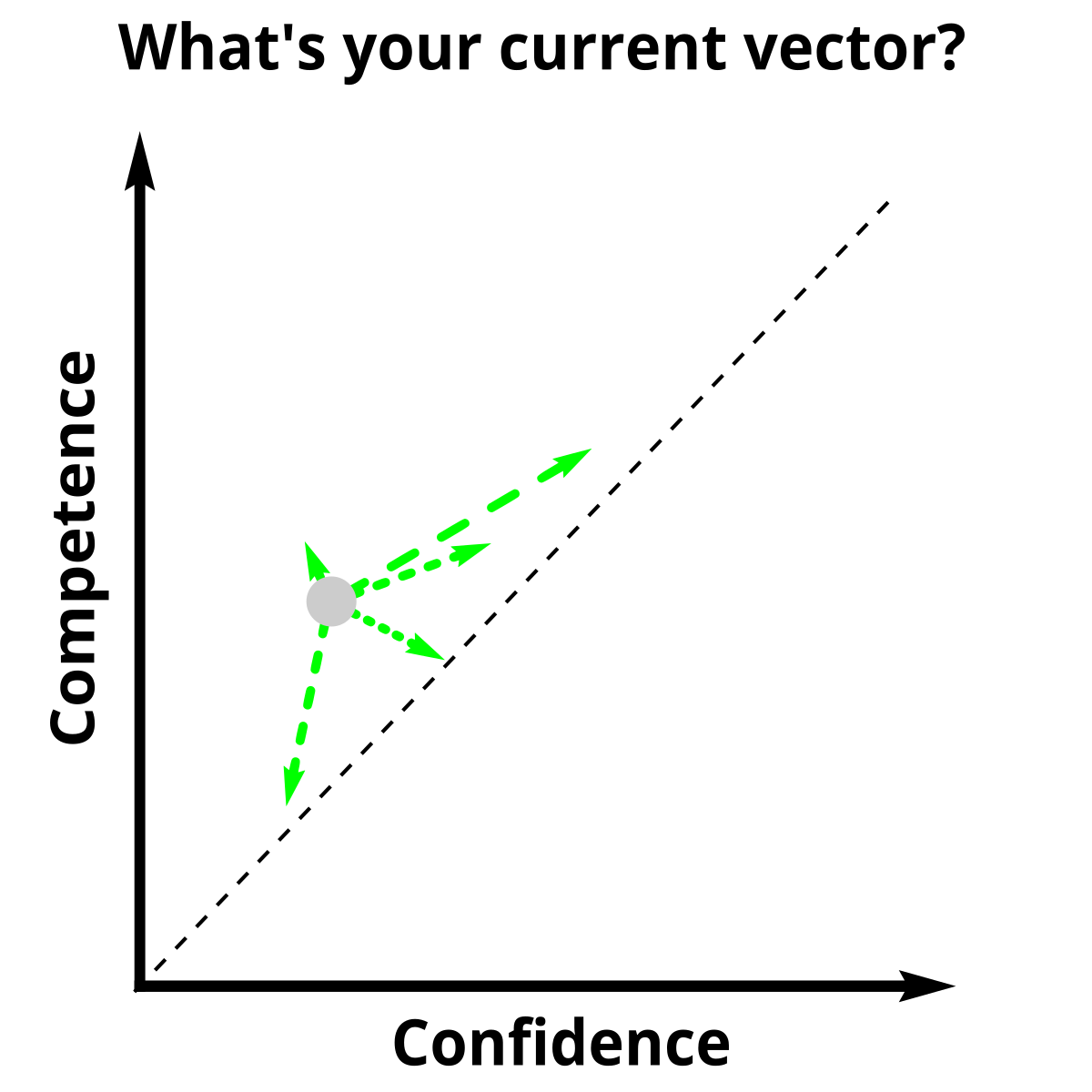
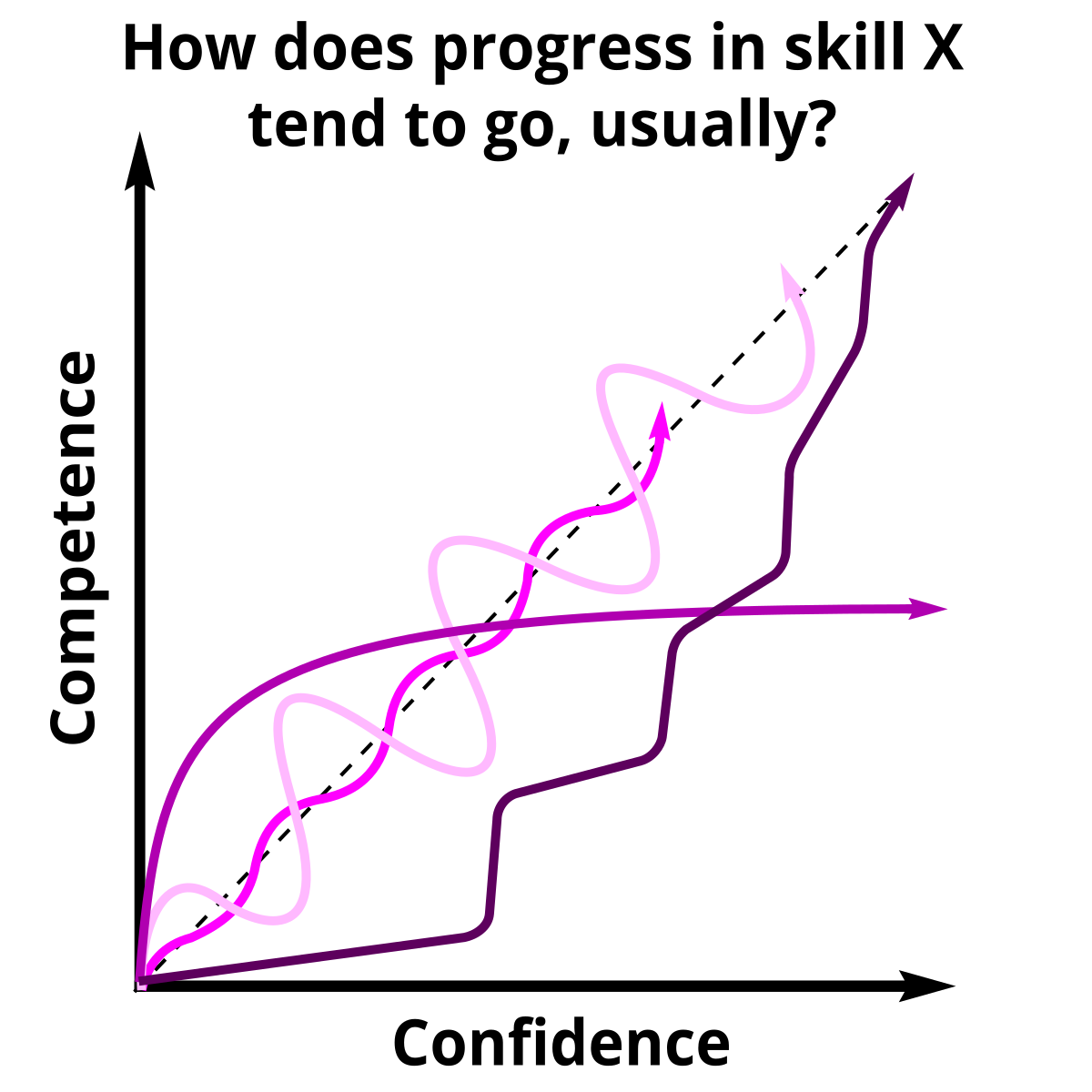
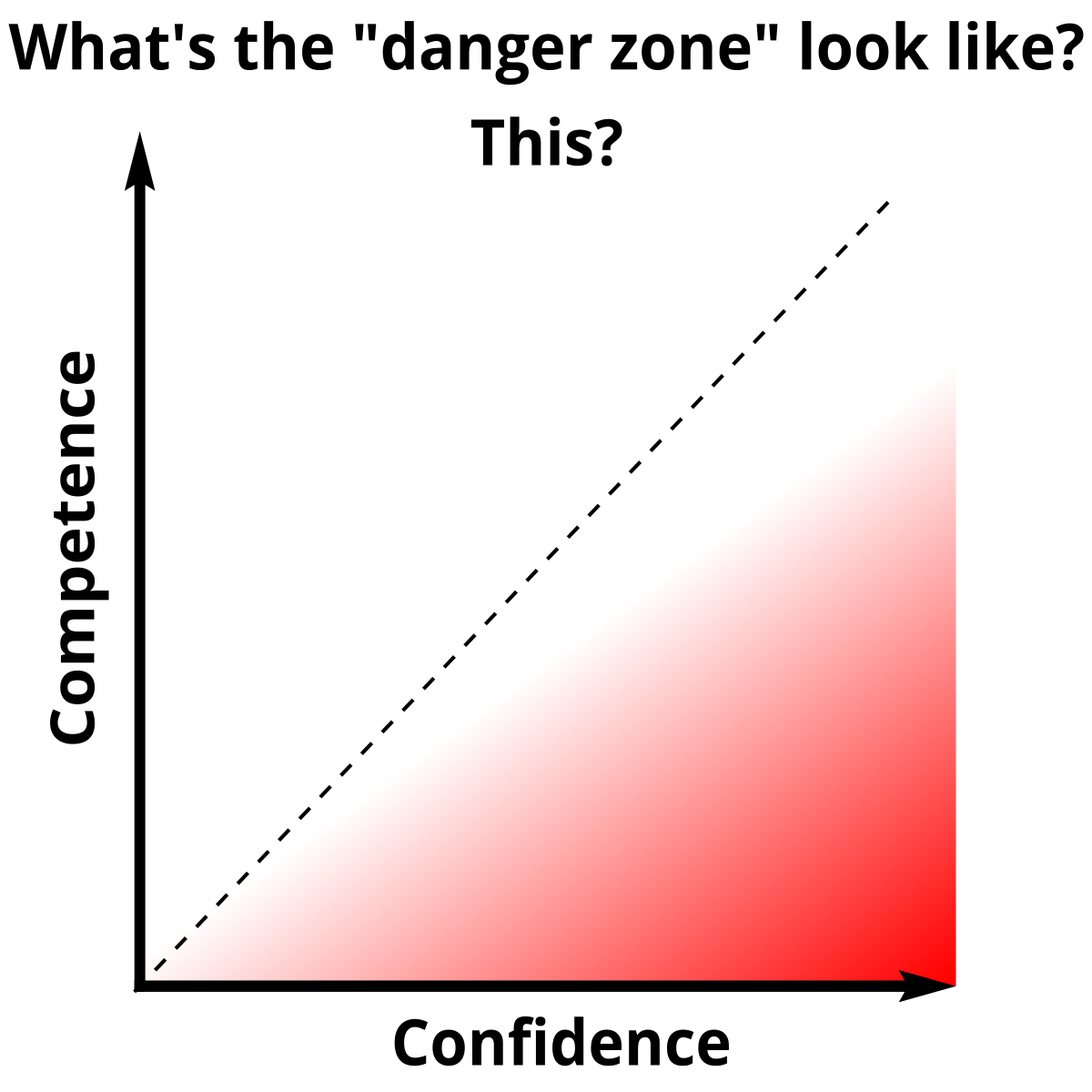
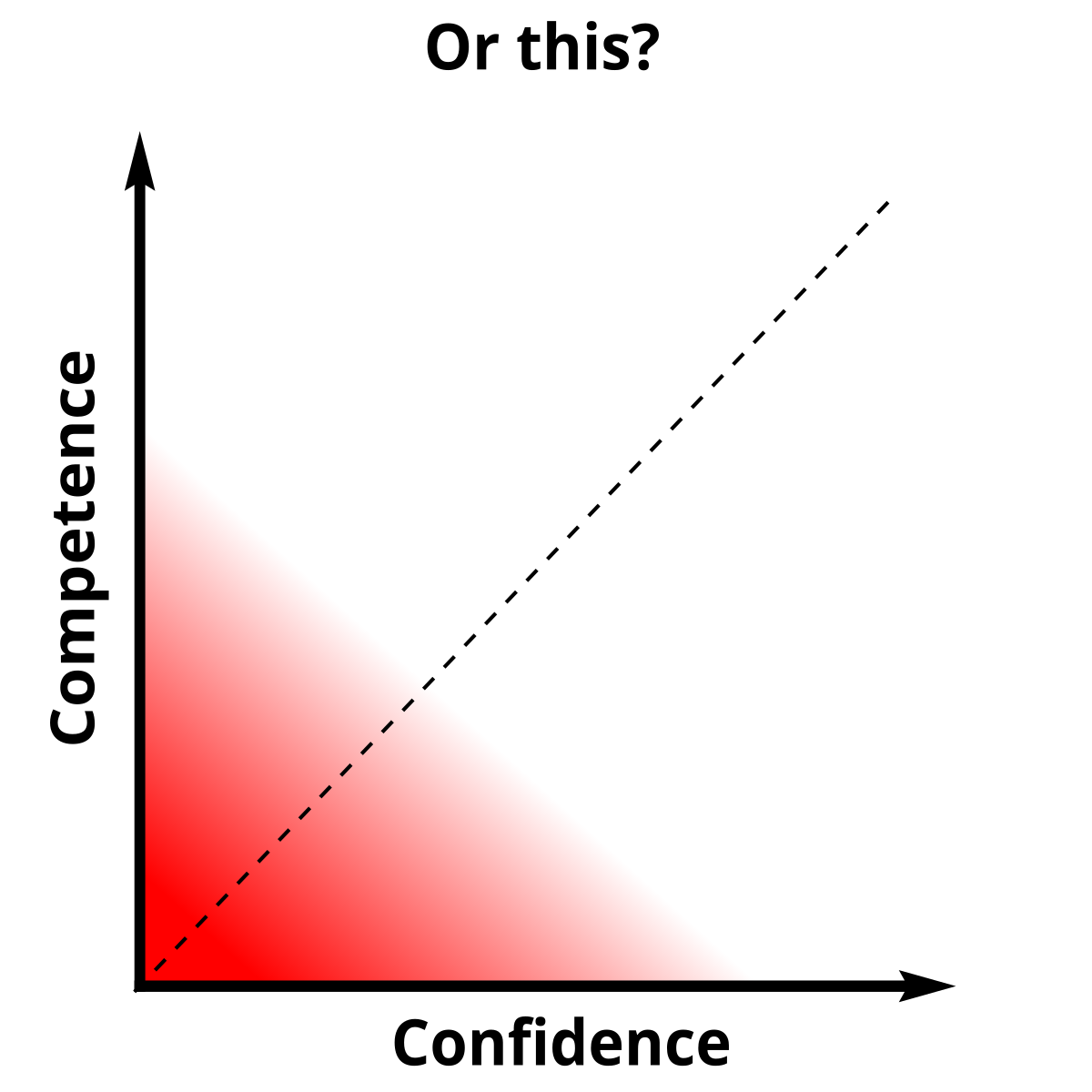
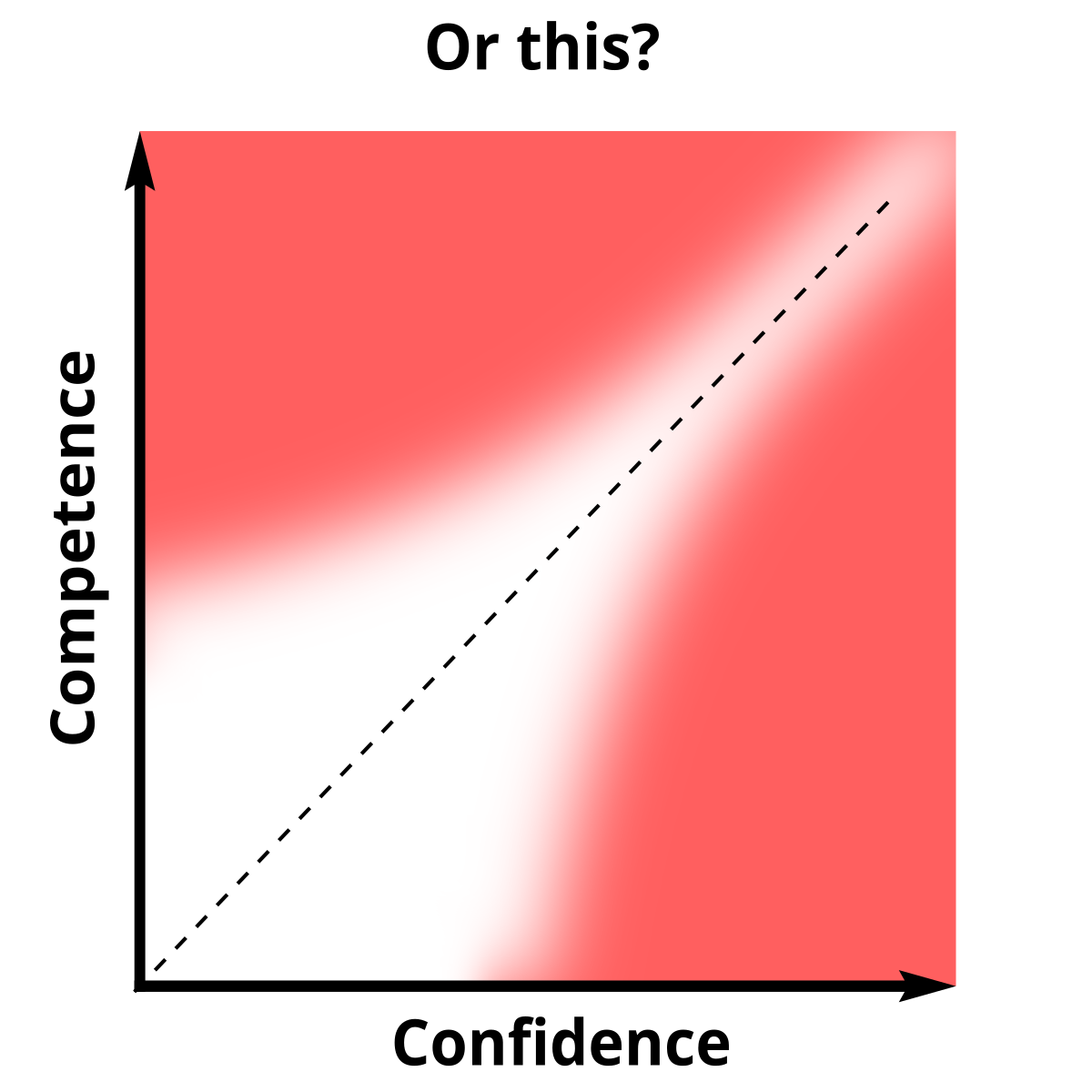
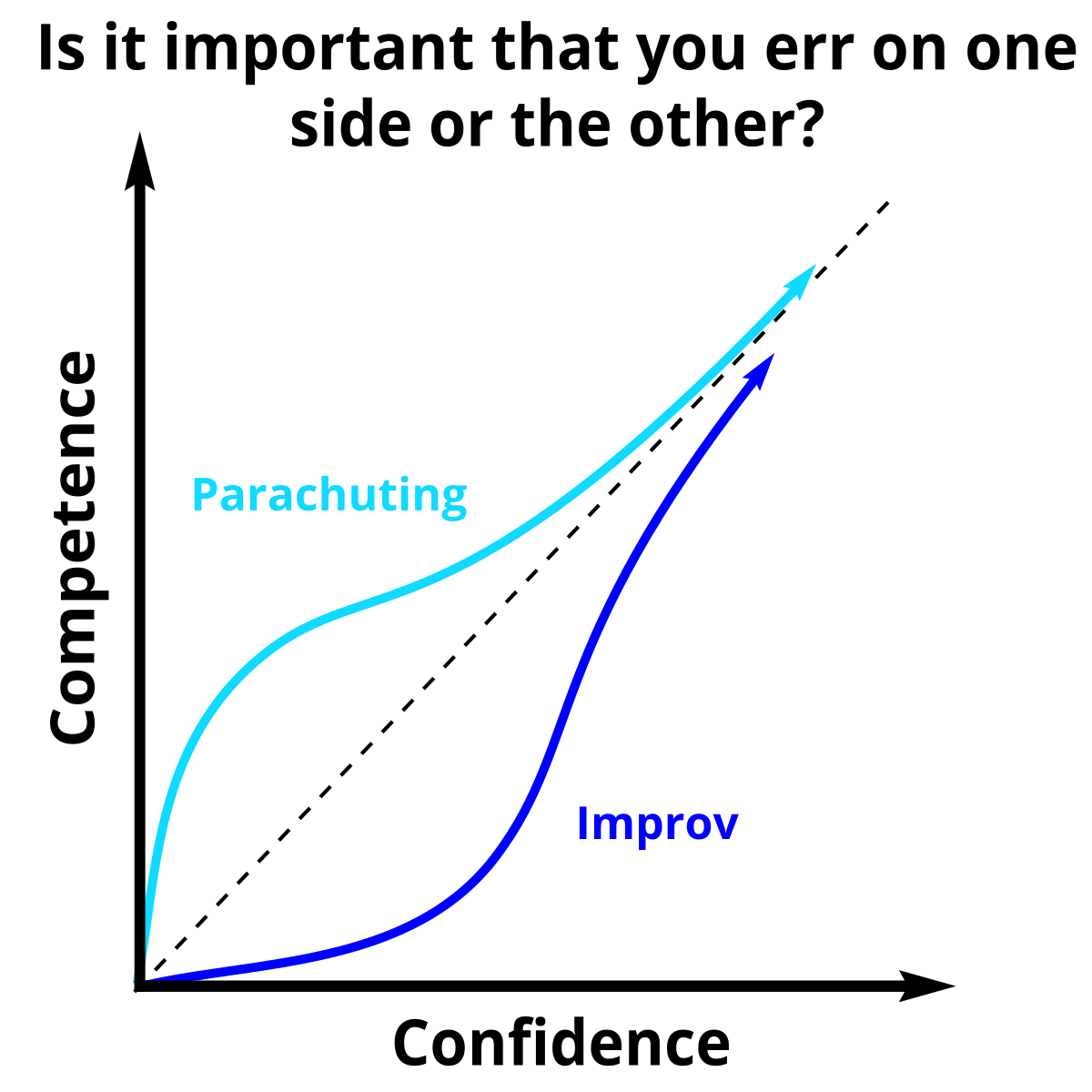
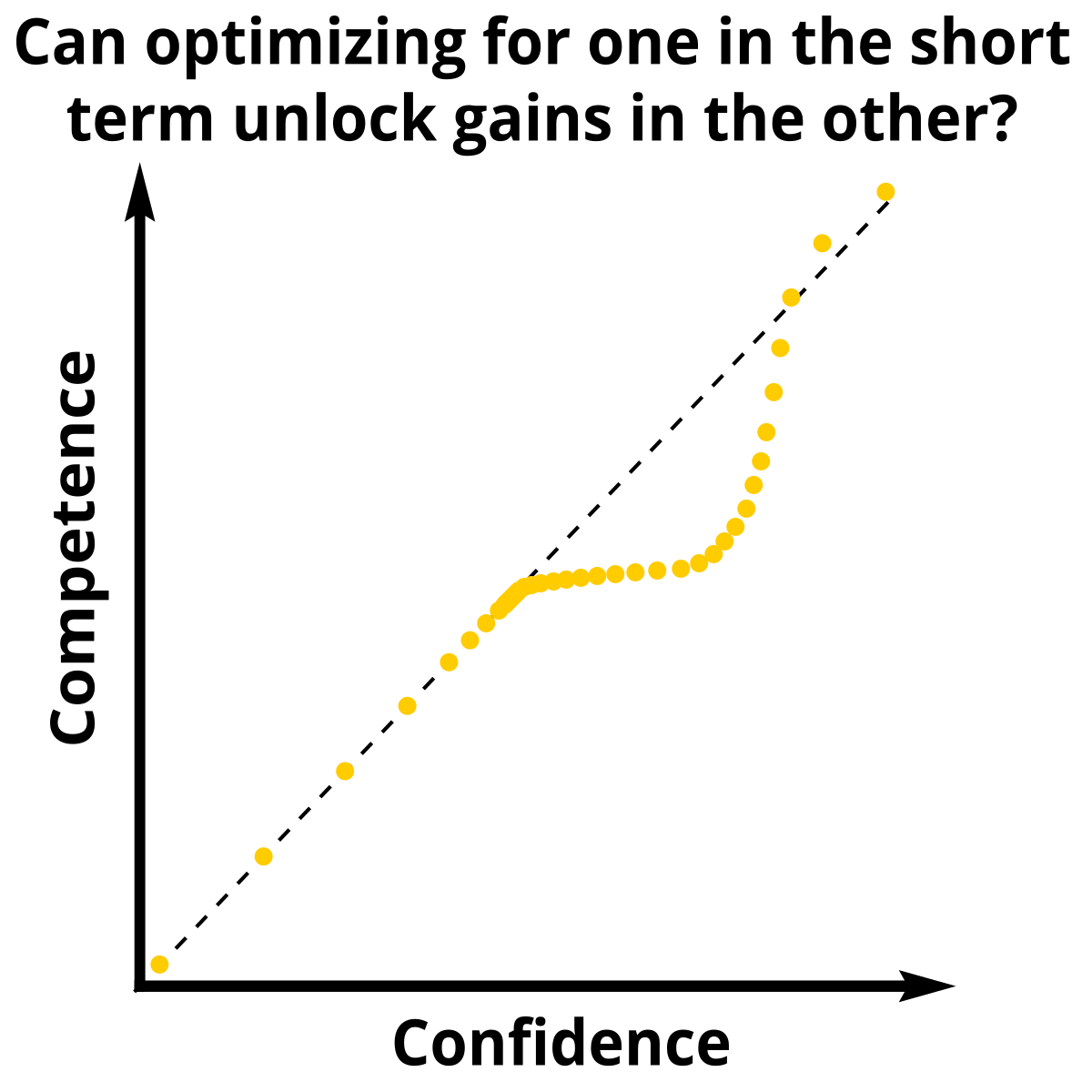
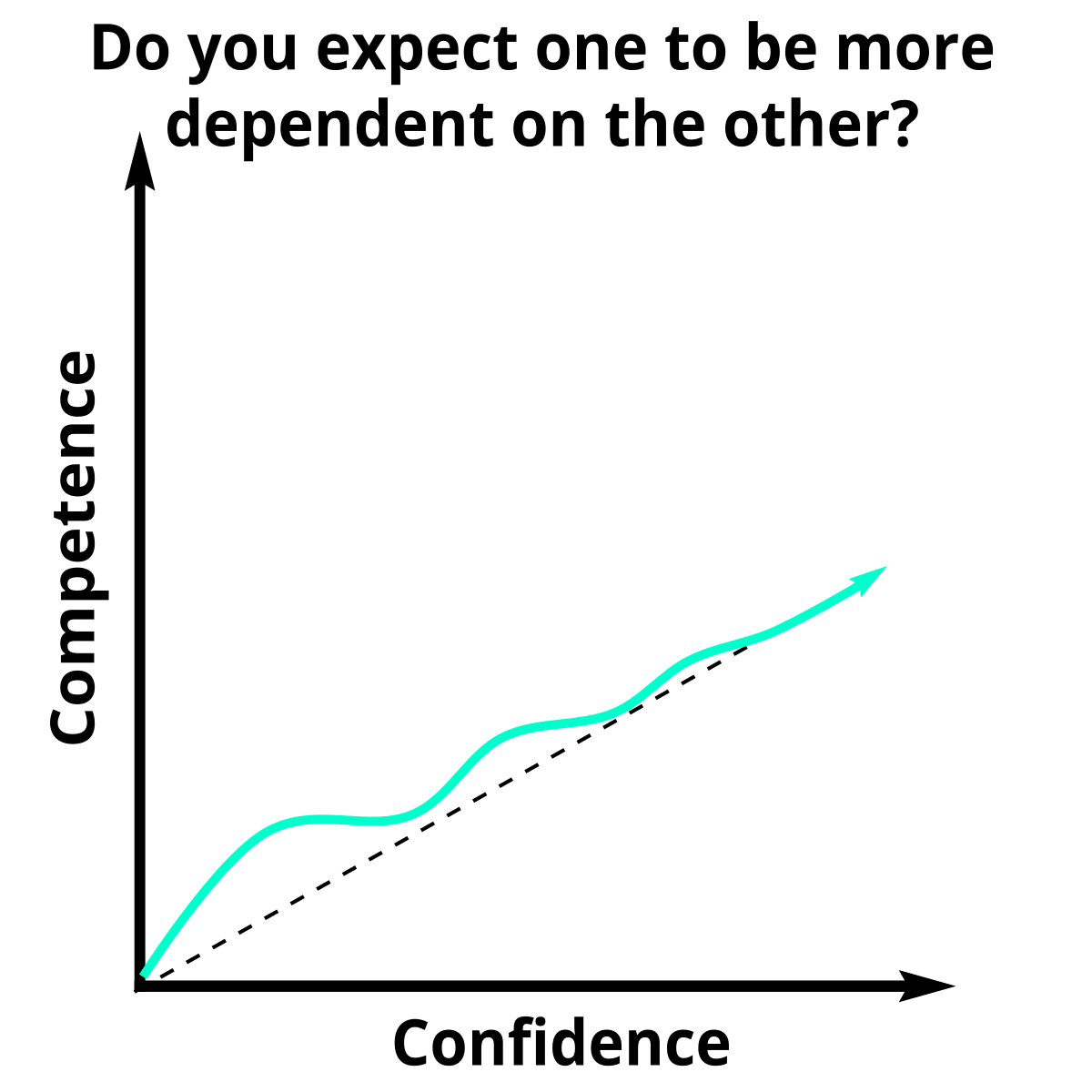
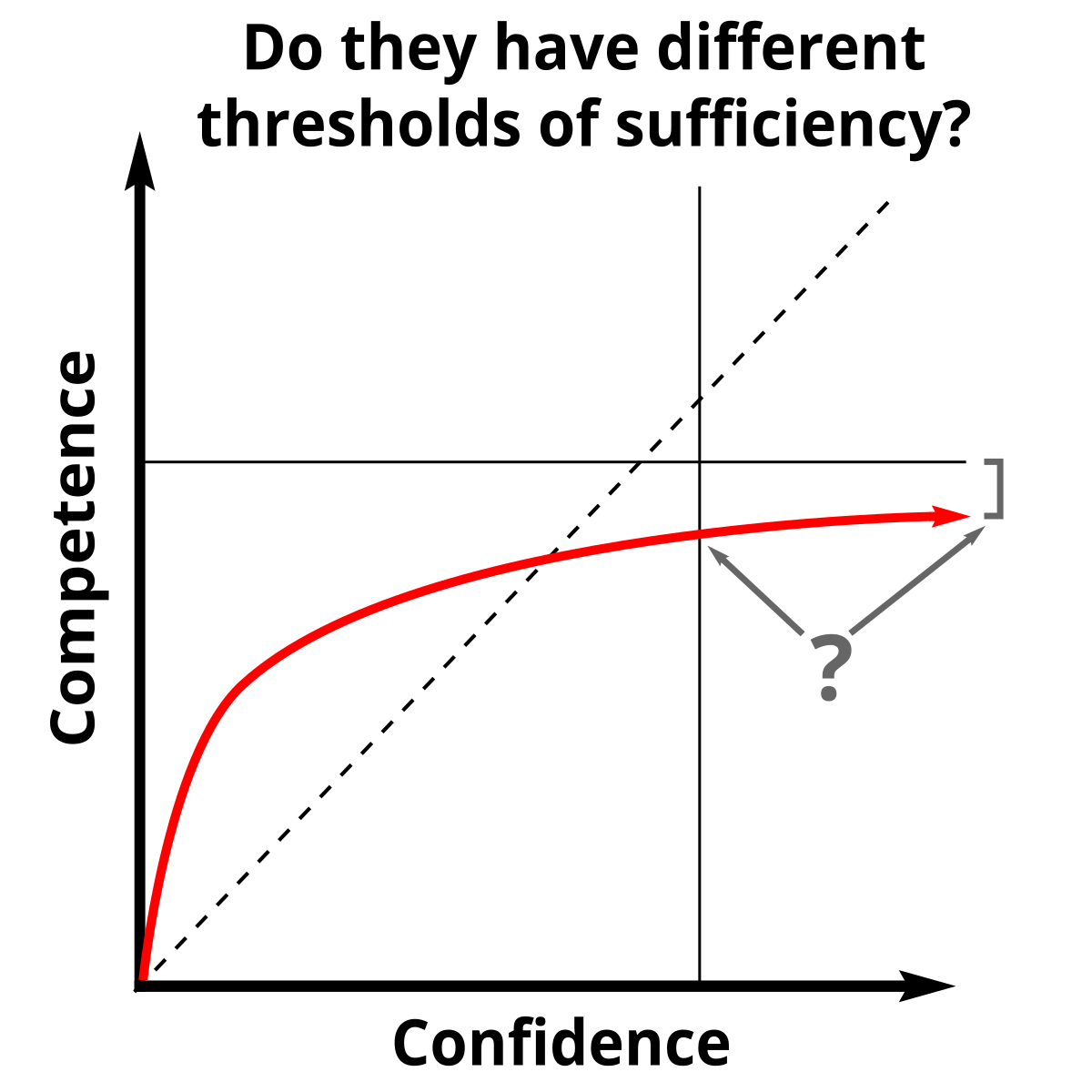
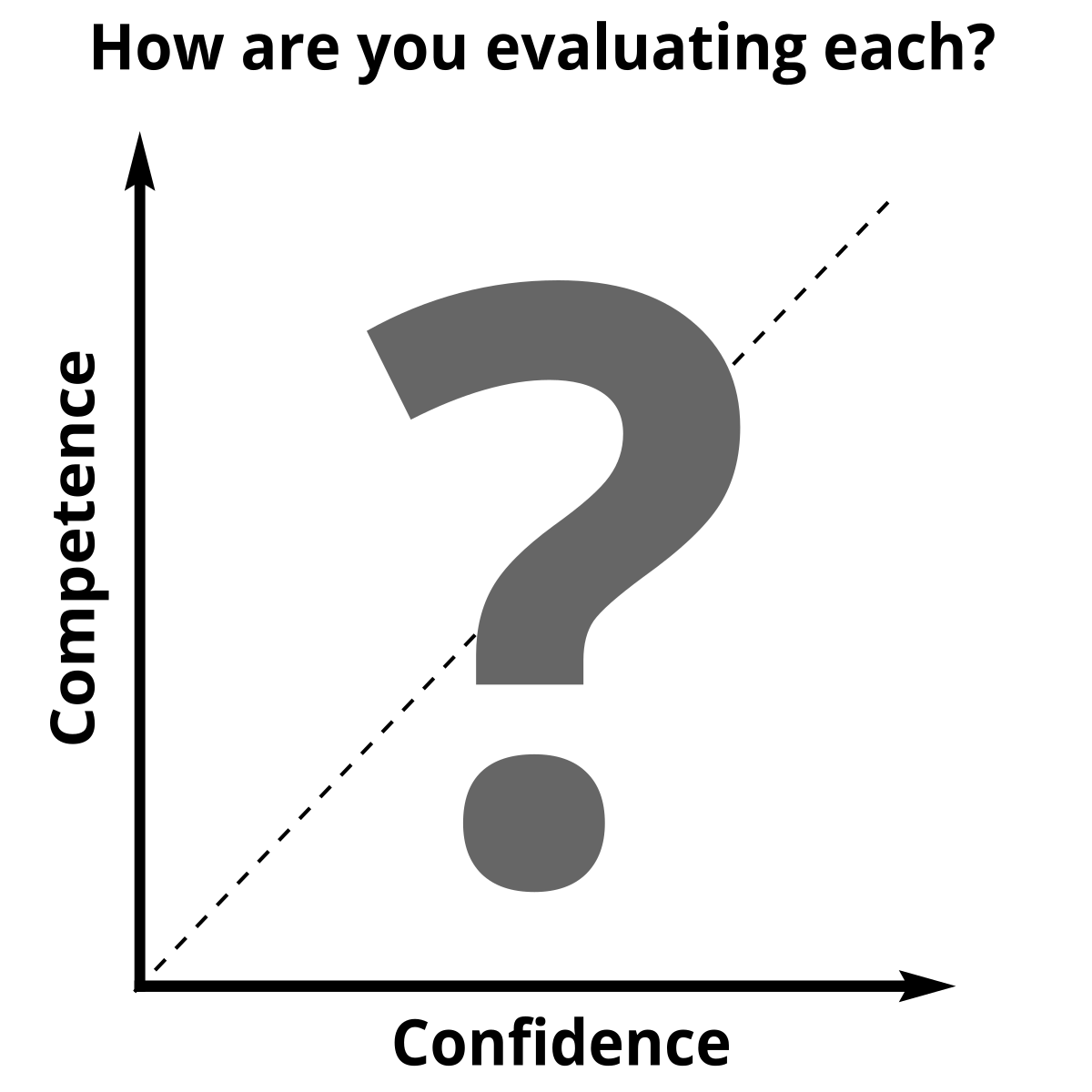
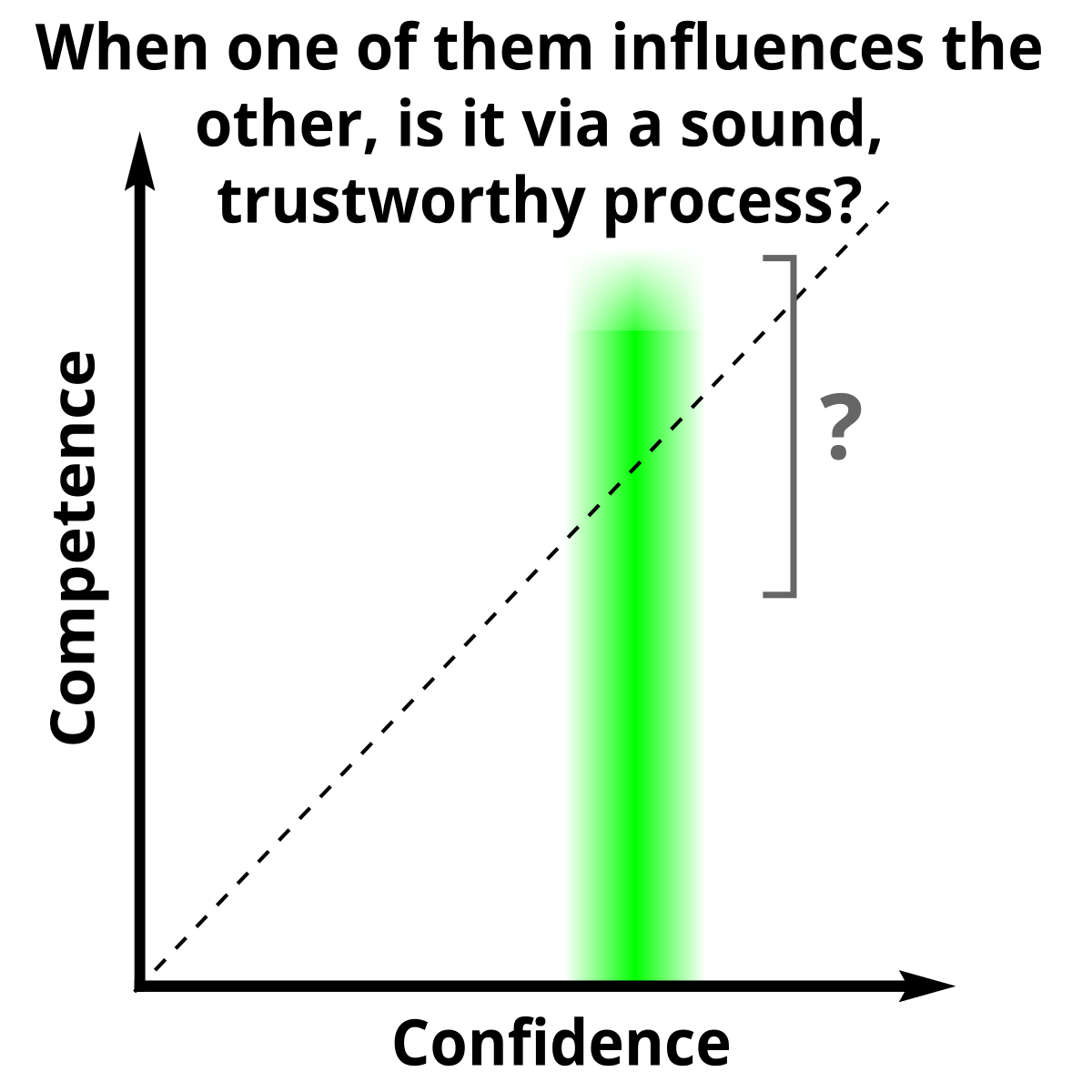
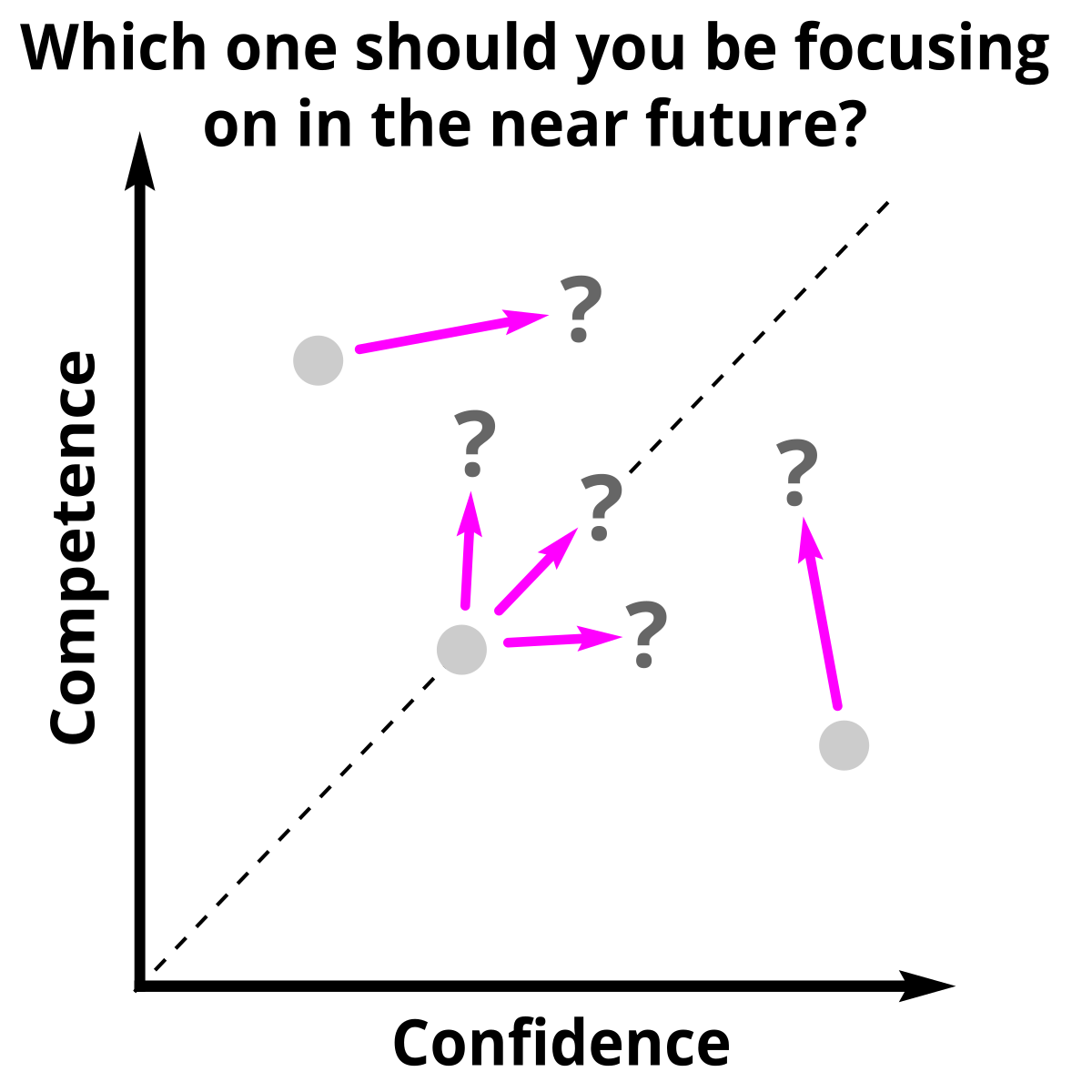
If you actually engaged with this exercise, I'd be curious to hear what happened, and what it was like for you.
If you intended to engage with it, but bounced off, I'd be interested in hearing your best guess as to why.
19 comments
Comments sorted by top scores.
comment by LoganStrohl (BrienneYudkowsky) · 2021-11-20T19:08:14.729Z · LW(p) · GW(p)
I actually engaged with this exercise, though perhaps not as fully as I could have.
The graph format was at first an amusing treat, then exhausting as I realized I was going to have to keep decoding graphs without a break (I'm not good at decoding graphs), and then I either got used to it or perhaps, um, a little bit gave up on it and started going too quickly and being somewhat dismissive. Probably a bit of both.
I picked "only suffering once", as opposed to also suffering from my expectation to suffer again in the future. ("I'm sad now, and what's even worse is that since I have been sad before, this will probably happen to me again, oh no!")
I spent most of the post feeling perplexed about why anyone would ever want to focus on "confidence", even though I simultaneously expected I'd be able to reasonably answer that question if I tried. I seem to have some kind of epistemic immune response going on that encounters a thought like, "Maybe I should increase my confidence independently of my best guess about my competence," and responds by shouting "WHAT NO ARE YOU CRAZY STOP". As I considered your "improv" example, I found myself working pretty hard to fabricate the details of the story where as your competence increases, you lean more into the things you would be getting by focusing exclusively on confidence if you, like, didn't care about believing true things.
For my own example with "suffering only once", my responses to the graphs kept being "confidence increases with competence, confidence increases with competence, of course I want confidence and competence to be locked together".
I could not figure out what graph with the fuzzy green bar means.
I did at least notice that I don't think it matters very much if I fail to recognize my competence in this skill, so long as I keep performing it well, since I'm not exactly dumping a lot of resources into deliberately improving, which might have caused some relaxation that wasn't already there.
At the end, I wondered what the heck is going on in your head, and whether you mean completely different things than I do by "confidence".
This was cool. I hope you do more of it.
↑ comment by sab (sbarzowski) · 2021-11-21T03:19:47.889Z · LW(p) · GW(p)
I seem to have some kind of epistemic immune response going on that encounters a thought like, "Maybe I should increase my confidence independently of my best guess about my competence," and responds by shouting "WHAT NO ARE YOU CRAZY STOP".
Yeah, If "confident" means "I think I'm good at something", it's weird to say "I'm good at X, but I think I'm not good at X".
Perhaps it's a bit of a system-1 vs system-2 distinction? I.e. you can consider yourself competent, but still viscerally anxious.
↑ comment by gbear605 · 2021-11-22T02:58:11.500Z · LW(p) · GW(p)
Imposter Syndrome is pretty common in a lot of fields, where an outsider observer can see that someone is quite competent at a skill (and the person can see that in objective metrics), but from the inside view there is a lot of self-doubt and they have low confidence. I know that it's common in software engineering, especially in people who come from an unusual background for the field (eg. women and people of color).
comment by L Rudolf L (LRudL) · 2021-11-22T00:33:08.314Z · LW(p) · GW(p)
Since some others are commenting about not liking the graph-heavy format: I really liked the format, in particular because having it as graphs rather than text made it much faster and easier to go through and understand, and left me with more memorable mental images. Adding limited text probably would not hurt, but adding lots would detract from the terseness that this presentation effectively achieves. Adding clear definitions of the terms at the start would have been valuable though.
Rather than thinking of a single example that I carried throughout as you suggest, I found it most useful to generate one or more examples as I looked at each graph (e.g. for the danger-zone graphs, in order: judging / software testing, politics, forecasting / medical diagnosis).
comment by Sameerishere · 2021-11-20T19:23:49.319Z · LW(p) · GW(p)
I think I would enjoy and appreciate learning this framework. A bunch of graphs without explanation or examples is, unfortunately, too dry and difficult for me to understand.
comment by tivelen · 2021-11-21T03:03:53.457Z · LW(p) · GW(p)
How is confidence different from the belief you have in your own competence? Your self-reported confidence and competence should always be the same.
Is there something I'm missing, some way that confidence is distinct from belief in competence?
↑ comment by Duncan Sabien (Deactivated) (Duncan_Sabien) · 2021-11-21T06:35:05.704Z · LW(p) · GW(p)
The word "confidence" is a bit fuzzy, and is conflating a few things, here, but also I think that's okay.
One of the things is the delta between one's self-reported competence and one's felt sense of confidence—I agree that in a certain sense they would always be the same if people were perfect perceivers and perfect reasoners, but they usually aren't.
Another is something like ... maybe you would call it meta-confidence? i.e. "I'm just a white belt and I really suck at these roundhouse kicks, but I'm going to confidently proceed throwing them, counting on repetition to help me improve!"
Replies from: tivelen↑ comment by tivelen · 2021-11-21T22:42:42.300Z · LW(p) · GW(p)
In the graphs, is "confidence" referring to "confidence in my ability to improve", then? And so we are graphing competence vs. ability to improve competence?
Otherwise, if I'm trying to place myself on one of these graphs, I'm simply unable to to anything but follow the dotted line. There is no "felt sense of confidence" that I can identify in myself, that doesn't originate in "I am competent at this".
↑ comment by Duncan Sabien (Deactivated) (Duncan_Sabien) · 2021-11-21T23:56:00.370Z · LW(p) · GW(p)
How about "anticipated okayness of failure"? Like, one may typically proceed "more confidently" in an arena that doesn't matter/where there are low or no stakes, than in an arena where one fears the consequences of a misstep. Does that match any subjective experience you have?
Replies from: tivelen↑ comment by tivelen · 2021-11-22T02:11:40.495Z · LW(p) · GW(p)
Interesting, that was something I considered, but didn't think was included in the idea of confidence. I have experienced that before. The stakes of a situation also seems like an objective fact, like competence. Perhaps the subjective evaluation of stakes and competence are entangled into the feeling of confidence. Maybe it has something to do with low variance of outcomes? If you have done something a lot, or if it doesn't really matter, then there isn't anything to worry about, because nothing that matters is up for grabs in the situation.
↑ comment by gbear605 · 2021-11-22T03:08:40.828Z · LW(p) · GW(p)
I think the key here is when your self-rating of competence differs from your actual competence.
If someone is bad at karate (low competence) but thinks they're really good (high confidence), they'll be in the bottom left area. This could go wrong for them if someone attacked them and they attacked back and totally messed up.
On the other side, if someone is good at karate (high competence) but doubts themself (low confidence), they'd be in the top right area. This could go wrong for them if someone attacked them and they assumed that they're bad and didn't bother to fight back, even if they could've defended themself successfully.
↑ comment by IrenicTruth · 2021-11-22T15:09:09.050Z · LW(p) · GW(p)
I had a similar issue. I could not do the exercise because I could not figure out how to evaluate confidence and competence separately. I always end up on the x=y line. Reading this thread did not help. "Anticipated okayness of failure" doesn't change much with time for the same task, so that is a vertical line. "Confidence" = "Self-related ability to improve" is an interesting interpretation (working on "confidence" would be working on learning skills). Still, intuitively it feels off from what the graphs say (though I haven't been able to put the disconnect into words). Thinking about the improv/parachute graph, maybe "confidence" is "willingness to attempt a task despite being incompetent." I'm giving up for now.
comment by chanamessinger (cmessinger) · 2021-11-20T14:46:48.029Z · LW(p) · GW(p)
What comes to mind immediately for me is that conveying those of these that are relatively empirical to newcomers in each given field seems really valuable.
comment by Raemon · 2021-11-20T21:52:23.900Z · LW(p) · GW(p)
I initially was glazing over looking at the graphs without knowing what to do. Then I remembered I was supposed to be applying this to a particular skill. Then I tried doing that, but it was effortful and I stopped.
Options: have more handholding about what it means to apply a graph to a skill, and/or handholding on what sort of skills are relevant. (I think Logan’s example was lower relevant than usual)
comment by Alex Vermillion (tomcatfish) · 2021-12-28T22:37:05.116Z · LW(p) · GW(p)
(This comment written as if directed to Dunkin, so that's who "you" is)
Second [LW(p) · GW(p)] on "Loved the format, could use small explainers sometimes". I did not actually attempt the exercise, because I honestly came here from seeing LoganStrohl's comment and wanted to see what this weird format post was. I am not sure I have any skills where I can do a good job evaluating confidence and competence separately, as some other commenters noted.
I'd bet it's different per person, but I couldn't get a good lock on what some of the graphs meant[1]. I didn't understand what the "danger zone"[2], dependency[3], and sufficiency[4] graphs were pointing at..
I also couldn't understand why the "gains in one optimizes another" graph returned to the baseline[5]. It seemed the skill-practicer would be well suited to attempt to continue along the "correct" lines. This might be cleared up if instead the competence dimension, after the undershoot, shot up really quickly. Looking again to write this, it seems like you kind of did this, just with a different scale, but I didn't see that without pretty close focus, and I don't think I did a bad job, so it was probably completely missed by some people skimming.
Though I feel I could almost see what most of these meant. If Dunkin reads this: I'm actually super curious what these meant and wouldn't mind being told/corrected ↩︎
I took the graph to be a heatmap where redder means badder ↩︎
I really couldn't understand well enough to make a coherent sentence out of it, but my feeling is attached to the concept of scaling/normalizing data. ↩︎
I took to be questioning the goodness of the two highlighted datapoints ↩︎
The line ↩︎
comment by Thomas Sepulchre · 2021-11-21T18:04:34.363Z · LW(p) · GW(p)
Could you please explain what the second "danger zone" graph means, i.e. what kind of skill could have such a danger zone ?
The first danger zone is pretty clear: this is a skill for which being overconfident is bad. Any skill where failure is expensive falls in that category. Any dangerous sport would be an example, being overconfident could mean death.
The third follows a similar idea, where misplaced confidence is bad.
Replies from: Duncan_Sabien↑ comment by Duncan Sabien (Deactivated) (Duncan_Sabien) · 2021-11-21T18:21:56.530Z · LW(p) · GW(p)
The second one is intending to showcase a skill where it's simply dangerous for beginners, period. It's dangerous to be low-competence, and also it's dangerous to be low-confidence, and it doesn't much matter whether your competence and confidence are particularly linked once you're above moderate on either.
The easiest example coming to mind (but it's not a particularly good example) is standing backflips. Doing them badly is lethal, and also being underconfident as you attempt them makes lethal failure substantially more likely (the things an underconfident brain tries to do to protect itself during a backflip attempt are counterproductive).
But backflips are not actually particularly hard once you know how to do them, i.e. once you get past three successes.
comment by Beckeck · 2021-11-20T21:16:22.608Z · LW(p) · GW(p)
I barely assed the exercise but like/liked this.
For (graph comfortable) me i found the graphs* to cleanly get me to some subset of the relevant frames/questions/narratives.
if i'd written the post, a version of the final chart would have been first (or at least near). i have various other thoughts on that level which feel both like quibbles and like significant differences in how you and i (or an agent and another agent) carryout the moment to moment cognition of an attempting to be rational agent.
*except the green bar graph, which i could just guess at meanings for.